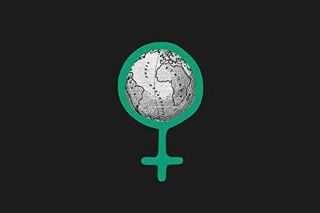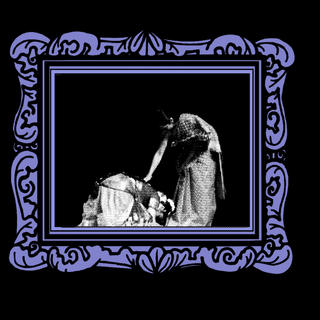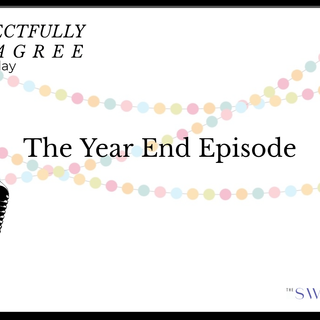
Láadan: The Fictional, Feminist Language Designed to Convey Unique Female Experiences
Radiidin (noun): A day that is technically supposed to be a festive holiday but is actually a burden because of the sheer amount of work to be done alone.

In the fall of 1981, feminist, linguist and science-fiction author Suzette Haden Elgin was nursing a few questions.
If existing human languages, by virtue of being historically built by men, are taken to be inadequate to express women’s perceptions and experiences, then, what mechanism do women have left at their disposal to even discuss their problems, if not for those very languages alleged to be inadequate?
Elgin’s musings were a part of a grassroots linguistic movement in the 1980s that analyzed sexism within what language contains, and what it doesn’t. It was this movement, for instance, that led to the coinage of the term ‘sexual harassment.’ Though men did sexually harass women before this, but only when feminists came together and created a word that didn’t exist in the language before, to talk about these female experiences, could they even begin to fight the pandemic that it was and is.
Coming back to Elgin and her question: She thought the best way to answer it was by combining her three areas of expertise and interest: gender, linguistics, and science fiction. The result was Native Tongue, a sci-fi trilogy in which she makes her central female characters, linguists by profession, literally create Láadan — a feminist language, complete with its own grammatical structure, vocabulary, and sound system — from scratch. Native Tongue‘s story is set in the dystopian future where North American women have lost all their rights, and are entirely at the command of men. It centers around the lives of women who create this secret language to resist their oppression.
For Elgin, Láadan and Native Tongue together serve as a thought experiment to test her hypothesis that the construction of a feminist language can pave the way for women’s equality; that what’s holding women back is the absence of a language that can accommodate the very experiences they need to talk about to achieve equality; and, that if someone made a unique language for women designed to encompass their world-view, they would embrace it wholeheartedly.
Related on The Swaddle:
From ‘Cunt’ to ‘Careerwoman’: the Many Ways in Which Language Propagates Sexism
Láadan’s lexicon is where Elgin makes most space for unique female experiences and female perspectives — it is arguably also the most attractive feature of the language. Take the word “doroledim,” for instance. The official dictionary begins its definition as: “this word has no English equivalent whatsoever.”
“Say you have an average woman. She has no control over her life. She has little or nothing in the way of a resource for being good to herself, even when it is necessary. She has family and animals and friends and associates that depend on her for the sustenance of all kinds. She rarely has adequate sleep or rest; she has no time for herself, no space of her own, little or no money to buy things for herself, no opportunity to consider her own emotional needs. She is at the beck and call of others because she has these responsibilities and obligations and does not choose to (or cannot) abandon them,” the dictionary continues, having established only the context for the word’s meaning until now — a context that’s all too familiar for most women. “For such a woman, the one and only thing she is likely to have a little control over for indulging her own self is FOOD. When such a woman overeats, the verb for that is “doroledim.”
The noun “radiídin,” on the other hand, means a non-holiday — that is, a holiday that is only a holiday in theory because the burden of work is so much and the preparations needed cause so much stress — especially when there are a lot of guests and yet no one helps.
Words like these, and several others, capture unique female experiences created within a patriarchal society — experiences that otherwise have no dedicated space in man-made languages. The term ‘dedicated space’ is important because it is not as if these ideas cannot be expressed in English or in any other existing language; it’s just that it can’t be done so efficiently. Women have, since time immemorial, been accused of feeling too much and then talking about those feelings too much. By condensing feelings that are common experiences to women into single words, Elgin not only gives them an economical way to express themselves, she also does away with the ‘complicated’ label, often attached to women’s feelings, and with it, dismantles a core gaslighting technique society uses to shame women into submission. It is, therefore, not odd for speakers of Láadan to feel “áazh” (love for one sexually desired at one time, but not now); or “zhama” (regret with reason, but with no blame, and futile); or “doóledosh” (the pain or loss that comes as a relief by virtue of ending the anticipation of its coming). Emotions not only have space in Láadan, but they are also linguistically, and therefore, socially, embraced.
To that end, the word ‘alone’ for instance, has eight structurally-related nouns with meanings like ‘to be alone,’ ‘alone at last after a tiresome experience,’ ‘to be alone in a crowd,’ ‘to be alone and glad about it,’ ‘to be alone with terror,’ ‘to be alone with grief,’ and ‘to be alone in the bosom of your family.’ Because what experience is more fundamental to women than loneliness in a society where they are kept indoors and away, tied down with chores and norms that have them competing among themselves?
Láadan also has a very nuanced vocabulary to encapsulate bodily experiences that are exclusively female. If “zháadin” means to menopause, “azháadin,” “elazháadin,” and “zháadinebúlith” mean to menopause uneventfully, to menopause when it’s welcome and “menopause-induced insanity” respectively. There are seven structurally-related verbs that mean ‘to menstruate,’ with different versions conveying different meanings such as to menstruate late, early, joyfully, painfully, for the first time and in sync with another woman. Among the five verb-variations of “lawida” (to be pregnant), “widazhad” is an example of not knowing one needs a word until one is given it. It means “to be pregnant late in the term and eager for the end” — a word millions of women would use rigorously if only it existed in mainstream language.
Elgin also noticed in everyday conversations around her that women were regularly facing antagonism in the form of questions such as “why can’t you take a joke?” or “why are you getting worked up? I only meant to joke!” which restricted women to the largely unhelpful, “It wasn’t what you said, it was the way you said it!” Elgin designed Láadan’s grammar so as to leave no scope for misunderstanding during communication, and to empower women to be able to convey emotional information conveniently without being dismissed.
Every Láadan sentence begins with a “speech-act marker” right at the beginning of the sentence indicating whether the sentence that will follow is a statement (“bíi”), question (“báa”), request (“bóo”), promise (“bé”), warning (“bée) or command (“bó”). Each of these markers can further be used in conjunction with one of nine suffixes denoting the intention of the chosen speech-act such as in jest, angrily, to teach, and in pain, among others.
Every Láadan sentence ends with an “evidential marker” to denote the evidence on the basis of which the speaker said the preceding sentence. Some of the eight evidential markers denote: Does the speaker know the sentence is true because of first-hand knowledge (“wa”)? Or, do they believe it’s true because a trusted source told them (“wáa”)? Or, do they think it’s false because not only do they distrust the source of the information, they think the source is acting with evil intentions (“waálh”)?
No detail was too small for Elgin; if in English — and most other ‘natural languages’ — women had to rely on body language to convey such information, Elgin wanted to cater to that deficiency with Láadan.
Related on The Swaddle:
The Difference Between Sexism and Misogyny, and Why It Matters
But the language was not above criticism. Lesbian feminists of her time criticized her for having no lesbian terminology in Láadan’s lexicon, just as most feminist intervention tools are pushed to be more and more inclusive of other communities also oppressed by the patriarchy. A few critics were also skeptical about the idea of a language expressing ‘women’s perceptions’ — what women, and which of their perceptions? Since there is no one set of perceptions belonging to all women across age, culture, religion, ethnicity, location, political leanings, language, sexuality and ability share, who gets to decide which ones make the cut as universal themes of womanhood? Additionally, just as there can’t be a universal women’s language for all the reasons mentioned above, are pre-existing man-made languages actually exclusive of women’s perceptions and experiences? If yes, then how did Elgin tell us this and create and explain Láadan using English?
One feature of Láadan that made it especially vulnerable to criticism was its usage of the word “be.” Kelly Rafey writes in Princeton’s journal for writing pedagogy Tortoise, “Elgin confusingly writes in the Native Tongue novels that the be pronoun is genderless .. yet suspiciously, [“be”] is used in every single Láadan translation with the word “she,” whereas “he” is only ever referred to as “behid” (“be” with the masculine suffix -id).” Similarly, the word “with” (person) is a root used in words like “háawith” (child) and “ewith” (anthropology), but “with” is also the word for “woman.” “Withid,” “háawithid,” and “ewithid” mean “man,” “boy,” and “study of males,” respectively. Therefore, it is clear that in Láadan, the female is normative and the male is deviant — which is the opposite of most natural languages, including English. (Think “man-made”, “mankind” and “woman.”) Though Elgin may have done with the feminist intention of providing an alternative to the masculine normative, replacing it with a feminine one is not the solution. Feminism doesn’t strive to invert the power balance between men and women; it strives for all to reach a fair and balanced compromise to occupy equal and respectful space in society.
As more time passed with Láadan in the public domain (Elgin had, in fact, issued directions for anyone interested in how to create and add words to the language’s vocabulary; she wanted the language to be publicly owned) it became clear to Elgin that her thought experiment had failed. Láadan got very little attention, and as Elgin recounted in a 2007 interview, “not once did any feminist magazine (or women’s magazine) ask me about the language or write a story about it … [The] conclusion I draw from that is that in fact, women (by which I mean women who are literate in English, French, German, and Spanish, the languages in which Native Tongue appeared) do not find human languages inadequate for communication.” Elgin was especially disgruntled by the wild popularity of Klingon — a language in the Star Trek universe constructed to express the hyper-masculine warrior worldviews, so much so that in the third novel in her trilogy, Earthsong, she had her female protagonists conclude that the creation of a women’s language was not the solution to resisting patriarchy, just as she thought it had failed in the real world.
Yet, Elgin didn’t think it was all for nothing. She was of the opinion that “patriarchal revolutions (that always fail!) go in a straight line; in a hurry” but a feminist revolution would succeed precisely because it “meandered slowly” toward its goals, as written by her in an essay that forms the prologue of her final book. Allegedly, she wanted the last book to be titled The Meandering Water Tribe (but her publisher rejected the idea) instead of Earthsong, because even though Láadan had failed to capture women’s imagination and empower them, the feminist idea behind the language — to question all the ways in which patriarchy indoctrinates women since their birth — still stands. Elgin compares this idea, this feminist force to the force of water: “it wears away resistance gently but inexorably over time, and is almost impossible to withstand.”
Pallavi Prasad is The Swaddle's Features Editor. When she isn't fighting for gender justice and being righteous, you can find her dabbling in street and sports photography, reading philosophy, drowning in green tea, and procrastinating on doing the dishes.
Related


This Is My Family: The Dance Teacher Who Has Become Like a Mother to Her Student
